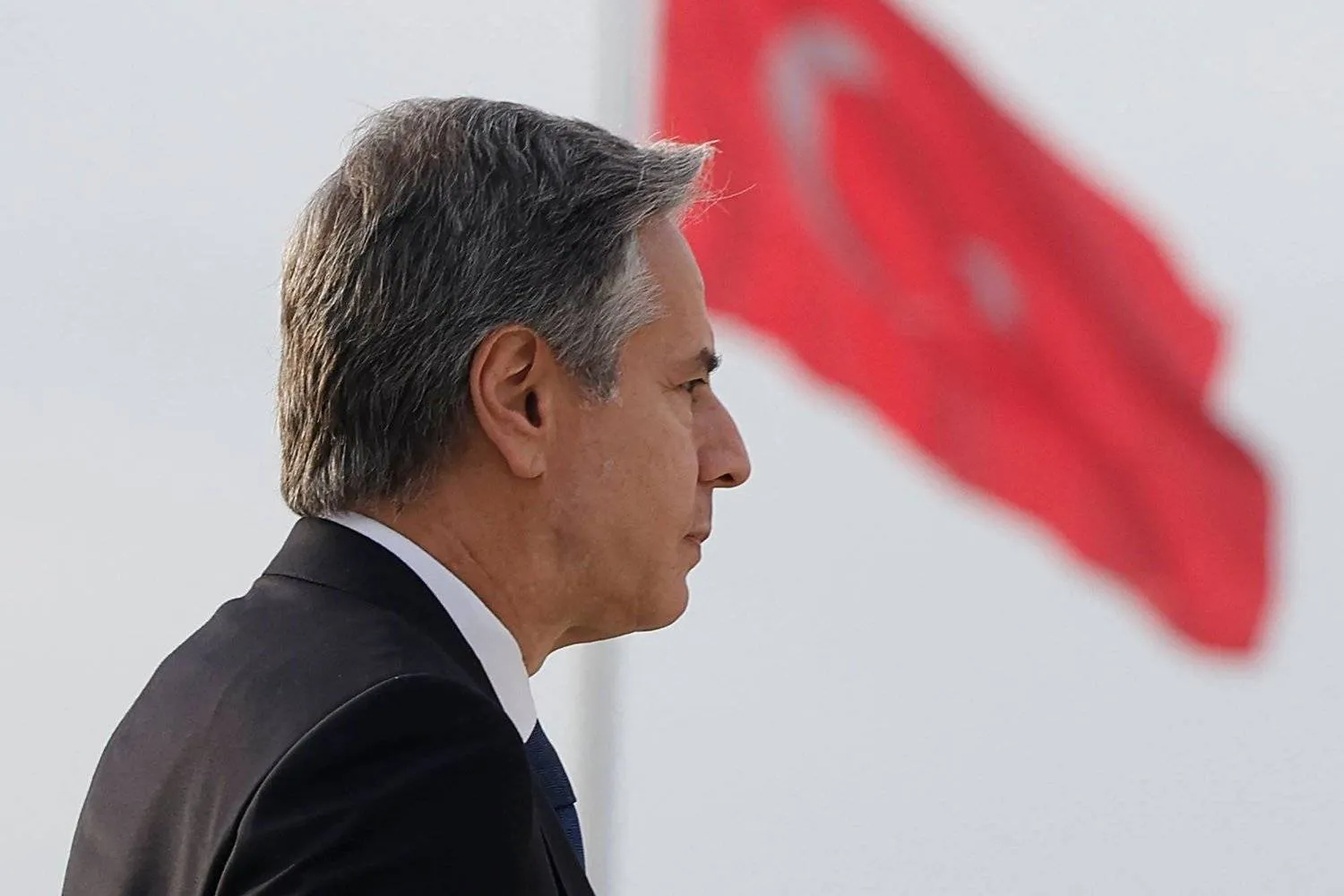Türkiye has conveyed its dissatisfaction with the United States' steadfast support for Israel and its resistance to a lasting ceasefire in Gaza, cautioning of a potential regional conflict arising from Israeli actions.
The Turkish stance came in parallel with Jordan’s reiteration of its rejection of the displacement of Palestinians in Gaza.
According to a Jordanian Foreign Ministry statement, FM Ayman Safadi will meet with US Secretary of State Antony Blinken on Sunday in Amman.
The two officials will discuss the urgent need for an immediate ceasefire.
Safadi will reiterate Jordan's firm opposition to the forced displacement of Palestinians within or outside their homeland, condemning it as a “war crime and a dangerous escalation of the conflict.”
Safadi will also stress the Kingdom's rejection of any future approach to managing Gaza that lacks a comprehensive security framework focusing on the unity of Gaza, the West Bank, and East Jerusalem and that any framework should aim to establish an independent, sovereign Palestinian state along the lines of June 4, 1967, with East Jerusalem as its capital, based on the two-state solution, the statement added.
On Sunday, Blinken and Turkish Foreign Minister Hakan Fidan discussed in Istanbul “the war and humanitarian crisis in Gaza, Sweden's NATO accession process, bilateral and regional issues," the Turkish Foreign Ministry said on X.
Later on, Blinken met with Turkish President Recep Tayyip Erdogan, in the attendance of Turkish National Intelligence Organization (MIT) head Ibrahim Kalin, Erdogan's chief adviser Akif Cagatay Kilic, and US Ambassador to Ankara Jeff Flake.
Outside Wahid al-Din Palace in Istanbul, a group of Turks gathered and held posters denouncing the US stance and describing President Joe Biden as a “killer.” Some held pictures of Hamas leader Saleh Arouri, who was killed Tuesday in an Israeli strike in Beirut’s southern suburb.
Following his visit to Türkiye, Blinken is set to proceed to Greece, Jordan, Qatar, UAE, Saudi Arabia, Egypt, Israel, and Ramallah.
Turkish Warning
The Turkish diplomats expressed discomfort with the US's unwavering support to Israel and its opposition to a permanent ceasefire, according to sources well-informed of the ongoing discussions.
The Turkish side warned that the Israeli practices could lead to a regional war.
Ahead of Blinken discussions, Spokesperson for the US Department of State Matthew Miller posted on X that Türkiye “has a crucial role to play in addressing regional security issues, including preventing the spread of the conflict in Gaza.”
Miller said Thursday that Blinken will focus on increasing the flow of humanitarian assistance into Gaza and also on efforts to release hostages.
The Case of Mossad Agents
On Friday, Erdogan highlighted that the most crucial reason for the heightened attacks on Türkiye is its determination “to protect its rights and interests and its upright stance on the Palestinian cause.”
The president added that the country has sided with the oppressed Palestinians and fearlessly defended the right cause and truth “in the case of the savagery in Gaza where 23,000 innocent people, mostly children and women, are massacred.”
In parallel, a court in Istanbul has ordered 15 of 34 people detained on suspicion of spying for Israel to be held in prison awaiting trial.
The suspects were arrested Tuesday for allegedly planning to carry out activities that included “reconnaissance” and “pursuing, assaulting, and kidnapping” foreign nationals living in Türkiye.
Israel’s foreign intelligence agency Mossad is said to have recruited Palestinians and Syrian nationals inside Türkiye as part of the operation against foreigners living in Türkiye. The operation targeted “Palestinian nationals and their families ... within the scope of the ongoing Israeli-Palestinian conflict.”
One suspect collected information about Palestinian patients recently transferred to Türkiye for health care.









